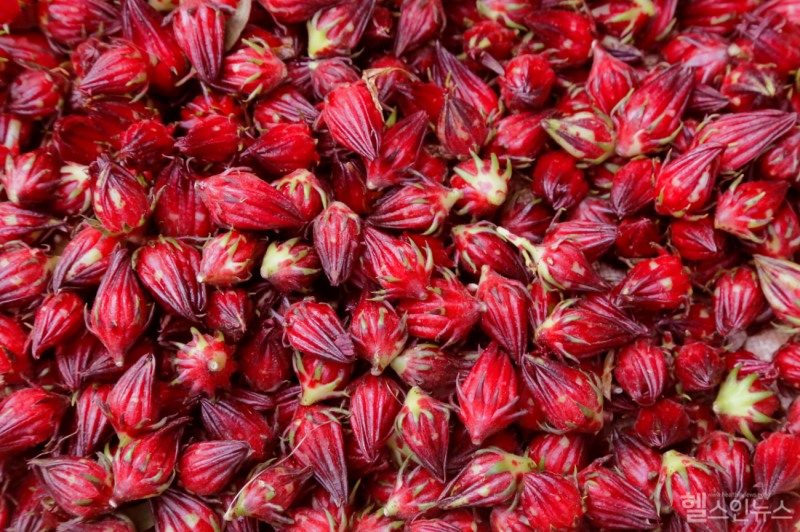Once considered merely an herbal tea, hibiscus has emerged as a beverage with robust health credentials. Research suggests it may lower blood pressure, reduce cholesterol levels, support liver function, and aid weight management. For those seeking alternatives to plain water or high-caffeine drinks, hibiscus tea offers a naturally caffeine-free option that delivers both flavor and potential wellness benefits.
Hibiscus has ancient roots in traditional medicine, used medicinally in Egypt thousands of years ago. Legend holds that Cleopatra drank hibiscus tea to preserve her beauty, and it symbolized both aesthetics and healing. The name "hibiscus" derives from the Egyptian goddess "Hibis" and the suffix "isco," meaning "resembling"—a flower dedicated to the divine. Below, we explore its key health benefits.

Antioxidant Properties
The tea is brewed not from petals but from dried calyces—the vibrant red sepals remaining after the flower wilts. These calyces are the richest source of antioxidants and impart the tea’s characteristic tartness.
Blood Pressure Benefits
For individuals with hypertension, dietary choices are critical. Hibiscus tea shows promise, particularly for those with mild to moderate high blood pressure. Multiple studies have documented its ability to lower systolic blood pressure (SBP) and diastolic blood pressure (DBP). In a clinical trial with 46 hypertensive patients, those who drank two to three cups of hibiscus tea daily for four weeks experienced significant blood pressure reductions compared to a placebo group. However, those taking antihypertensive medications should consult a physician, as hibiscus may interact with certain drugs.
Cholesterol Management
Hibiscus tea may also benefit those with dyslipidemia. Studies suggest it can lower low-density lipoprotein (LDL, or “bad” cholesterol) and triglycerides while increasing high-density lipoprotein (HDL, or “good” cholesterol). A 2009 study of 60 diabetic patients found that those consuming hibiscus tea showed significant reductions in total cholesterol and LDL levels, with increases in HDL, compared to those drinking black tea. Another study in patients with metabolic syndrome showed that daily consumption of 100 mg of hibiscus extract reduced total cholesterol and improved HDL levels. Results vary, with some studies showing limited effects in healthy individuals. The tea may be most effective as a complementary approach for those with dyslipidemia or metabolic syndrome, though individual responses differ.
Weight Management Support
Hibiscus tea has gained attention for weight loss support, with studies suggesting it may inhibit fat accumulation and improve metabolic health. In a 2014 clinical trial, 36 overweight adults were divided into two groups, with one receiving hibiscus extract for 12 weeks. The extract group showed significant reductions in body weight, body fat percentage, body mass index (BMI), and waist-to-hip ratio. These effects are attributed to polyphenols and flavonoids, which may suppress fat absorption and storage.
Liver Health
Emerging research suggests hibiscus tea may help prevent fatty liver disease and support liver function. In a 2014 small-scale clinical trial, 19 overweight adults who consumed hibiscus extract for 12 weeks showed notable improvements in hepatic steatosis, the accumulation of fat in the liver. Preventing fatty liver is critical, as it can lead to inflammation and impaired liver function over time.
Potential Anticancer Properties
Hibiscus’s antioxidant properties may extend to inhibiting cancer cell growth and metastasis, according to preliminary research. Polyphenols in hibiscus are thought to reduce cellular damage and impair cancer cell viability. In vitro studies have shown that hibiscus extract can suppress the growth and spread of oral, blood, prostate, and breast cancers. Some studies suggest it may induce apoptosis (programmed cell death) or reduce the expression of proteins that facilitate metastasis. These findings are primarily from laboratory studies, and hibiscus tea is not a substitute for cancer treatment. It may be consumed as part of a health-conscious diet for preventive purposes.

Immune System Support
Beyond its antioxidant and anti-inflammatory effects, hibiscus exhibits antibacterial properties. Research indicates it can inhibit the growth of certain pathogenic bacteria, potentially aiding infection prevention. One study found that hibiscus extract showed antibacterial effects comparable to antibiotics against eight types of pathogenic bacteria. These effects likely stem from organic acids and polyphenols, which disrupt bacterial protein synthesis or cell membranes.
A Versatile Health Beverage
Hibiscus tea excels not only for its health benefits but also for its flavor, aroma, and versatility. Its tart, fruity taste makes it a palatable alternative to water or other beverages. To maximize health benefits, it’s best to brew hibiscus without added sugars, though pairing it with lemon, lime, or strawberries can enhance its flavor.
While many studies have used concentrated hibiscus extracts, further clinical research is needed to confirm whether standard tea preparations yield comparable benefits. Hibiscus tea is typically made by steeping dried calyces or tea bags in hot water. Its tart flavor pairs well with honey, lime, or mint, and it can be enjoyed hot or iced, adapting to seasonal preferences. As a caffeine-free option, it’s suitable for pregnant women, children, and those sensitive to sleep disturbances.
Hibiscus is widely available as dried flowers, blended teas, or ready-to-drink beverages at health food stores and online retailers. With its blend of functionality and enjoyability, hibiscus tea is an ideal choice for modern consumers seeking hydration and health in one vibrant package.
Health in news team Haeun Oh
press@hinews.co.kr





